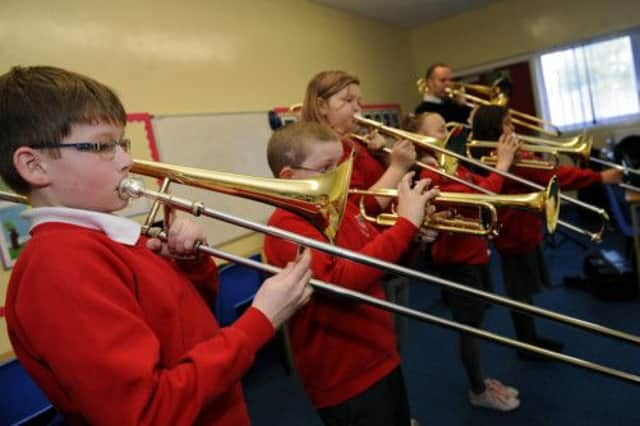Let The Children Play campaign hits right note


The plan, which has been given the go-ahead by the Scottish Government, is in the form of 17 recommendations made to ministers in June by the Instrumental Music Group in response to this newspaper’s campaign to scrap instrumental tuition fees.
Dr Alasdair Allan, Scotland’s minister for learning, science and Scotland’s languages, said: “The recommendations we take forward from today will enable councils, music organisations and others to work together to deliver the best instrumental music tuition available not just in Scotland, but beyond, and ensure this complements and enhances Curriculum for Excellence.”
Advertisement
Hide AdAdvertisement
Hide AdIt means the creation of the country’s first national policy on music education, more opportunities for children with additional support needs to learn an instrument, apprenticeships for young people who want to work with musical instruments, and a commitment to more clarity on local authority charging policies, as well as a permanent end to charging of fees for pupils sitting SQA exams. However, it stops short of scrapping tuition charges.
Scotland on Sunday has been campaigning on instrumental tuition fees since last September, when we revealed that 24 out of 32 local authorities across Scotland were now charging between £95 and £340 per year for a child to learn a musical instrument, 11 had raised charges in the previous year and five councils were also imposing fees on children sitting SQA music exams, effectively charging them to sit a National Curriculum subject.
Since then two local authorities have dropped all fees, none have raised them in the current school year and all SQA charging has been banned. The campaign also led to the creation of the Instrumental Music Group, a governmental working group that made 17 recommendations to government on the overhaul of instrumental music tuition in June. All 17 have now been approved by the Scottish Government.
Allan said: “What this means is the situation will not arise in the future in Scotland where anybody is prevented from taking up or learning a musical instrument because of their personal circumstances.”
The plan demands greater clarity from councils on charging, as well as increased sharing of resources between local authorities. An implementation group consisting of members from educational bodies as well as Convention of Scottish Local Authorities (Cosla), and a number of musical groups including the Royal Conservatoire of Scotland, will now have until December 2014 to implement the recommendations, which also include Scotland’s first conference on instrumental music education, which will be held in February next year.